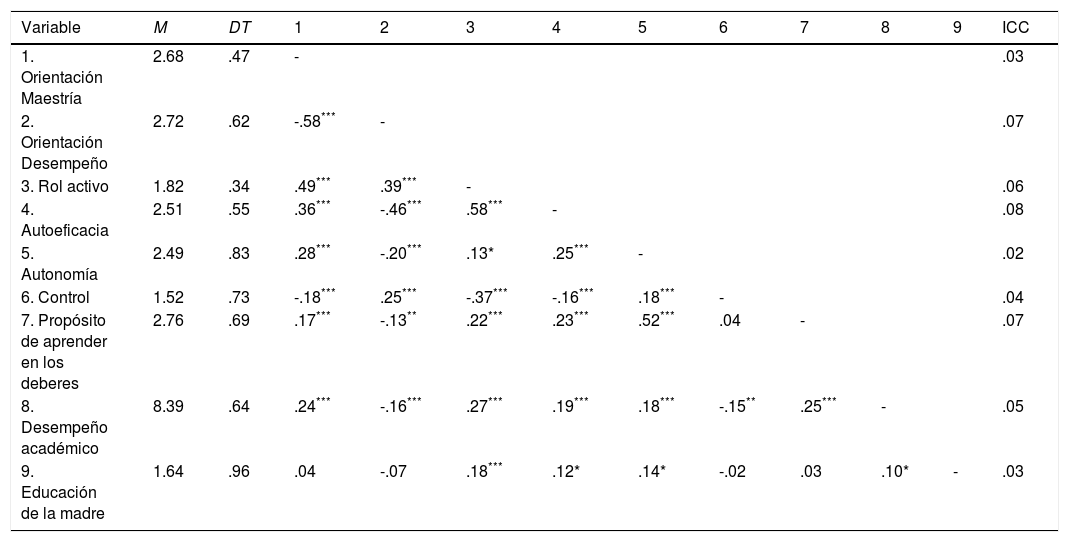En el estudio se analizan las relaciones entre las creencias motivacionales de las madres, su tipo de involucramiento y hacer los deberes escolares con el propósito de aprender de los estudiantes. Participaron 235 niños (M edad=11.09, DT=0.56 años) y 273 niñas (M edad=11.12, DT=0.62 años) de escuelas primarias de México, así como sus madres (M edad=37.85, DT=6.94 años). Se calcularon dos modelos estructurales. El primero muestra que la orientación hacia la maestría y la autoeficacia materna favorecen el apoyo a la autonomía y disminuyen el control, mientras que las creencias acerca del rol activo en la educación no se asocian con el apoyo a la autonomía, pero influyen negativamente el control. La orientación materna al desempeño disminuye su apoyo a la autonomía y favorece el control. La orientación a la maestría, la autoeficacia, el rol activo y el apoyo a la autonomía se relacionan positivamente con el cumplimiento de los deberes escolares con el propósito de aprender. El segundo es el modelo alternativo, que sugiere que hacer los deberes con el propósito de aprender influye positivamente la orientación a la maestría, la autoeficacia y el rol activo y negativamente la orientación al desempeño en las madres. Además, se asocia positivamente con el apoyo a la autonomía, aunque no afecta al control. Se concluye que existen relaciones recíprocas entre las características de las madres y la motivación de los estudiantes hacia las tareas.
The study analyzed the mediational model of relationship between mothers’ motivational beliefs, type of involvement (autonomy support and control) in homework, and the children's learning-oriented purposes for doing homework. The sample included 235 boys (M age=11.09, SD=0.56 years old), 273 girls (M age=11.12, SD=0.62 years old) and their mothers (M age=37.85, SD=6.94 years old) from Mexican elementary schools. Two structural models were calculated. The first model indicated that mothers’ mastery-oriented goals and self-efficacy had a positive relationship with the support of children's autonomy and a negative one with mothers’ control on children's homework. On the other hand, the mothers’ active role in education resulted negatively related to mothers’ control. Whereas mothers’ performance-oriented goals resulted negatively related to the support of children's autonomy, they were positively related to control. Overall, mothers’ mastery-oriented goals, and self-efficacy had a positive direct and indirect association with children's learning-oriented purpose in homework whereas performance-oriented goals resulted negatively. The alternative model indicated that children's learning-oriented purpose for doing homework promoted mothers’ mastery-oriented goals, self-efficacy, and an active role in education in mothers; in turn, it hinders their performance-oriented goals. In addition, it had positive direct and indirect associate to autonomy support, but not affected control. Overall findings suggest a reciprocal relationship between mothers’ characteristics and children's motivation for homework.
Artículo
Comprando el artículo el PDF del mismo podrá ser descargado
Precio 19,34 €
Comprar ahora









